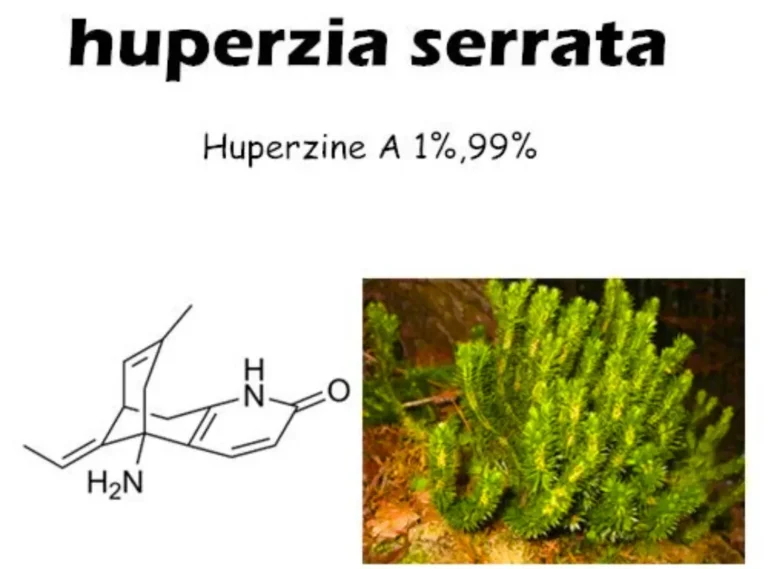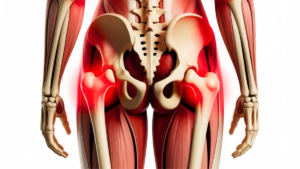Memory Loss During Menopause: Causes, Treatments, and How Huperzine A Can Help

Menopause is a natural stage in a woman’s life, but it’s also a time full of physical, emotional, and cognitive changes.
One of the most talked-about symptoms is memory loss or that “foggy mind” feeling, known as brain fog.
But is this normal? What happens in the brain during menopause? Is there a natural solution?
In this complete guide, we’ll explain why memory can weaken during menopause, the factors that contribute to it, and how a herbal compound called Huperzine A may help.
What Happens to Memory During Menopause?

During menopause, estrogen levels drop dramatically.
This hormone, in addition to regulating the menstrual cycle, plays an essential role in the brain:
-
Acts as a neuroprotector, shielding neurons from damage.
-
Stimulates the production of acetylcholine, a key neurotransmitter for learning and memory.
-
Improves brain circulation, delivering more oxygen and nutrients.
When estrogen decreases, communication between neurons becomes less efficient.
The result? Minor memory lapses, difficulty concentrating, and even slower reasoning.
What Are the Symptoms of Memory Issues in Menopause?
Not all women experience the same symptoms, but common ones include:
-
Forgetting appointments or simple tasks.
-
Difficulty recalling names or words.
-
Losing focus in daily activities.
-
Feeling mentally “foggy” (brain fog).
-
Slower processing of information.
These symptoms can be temporary, but for many women, they affect work, social life, and self-esteem.
https://mariahchic.com/menopause/red-clover-menopause/
Why Does Memory Get Worse at This Stage of Life?
Memory loss during menopause is caused by several factors. The main ones are:
1. Decline in Sex Hormones
Estrogen helps maintain healthy neural connections. Without it, acetylcholine production drops, impairing memory.
2. Sleep Disturbances
Hot flashes, night sweats, and insomnia interfere with deep sleep, which is essential for memory consolidation.
3. Emotional Changes
Anxiety, irritability, and depression directly impact focus and information retention.
4. Oxidative Stress
With age, more free radicals are produced, which can damage brain cells.
5. Sedentary Lifestyle and Poor Diet
A lifestyle lacking nutrients and physical activity reduces brain oxygenation.
Huperzine A: The Herbal Ally for Memory

Huperzine A is a natural compound extracted from the plant Huperzia serrata, used for centuries in traditional Chinese medicine.
How Does It Work?
Huperzine A inhibits the enzyme acetylcholinesterase, which breaks down acetylcholine in the brain.
With more acetylcholine available, communication between neurons improves, benefiting memory, reasoning, and learning.
Origin and Traditional Use
-
Plant: Huperzia serrata (a type of moss or clubmoss).
-
Region: China and Southeast Asia.
-
History: Used in Chinese medicine to enhance mental clarity, improve concentration, and address memory issues.
What Does Science Say About Huperzine A?

Studies suggest that Huperzine A may:
-
Improve short- and long-term memory.
-
Support learning ability.
-
Protect neurons from oxidative damage.
-
Be helpful in cases of mild cognitive decline.
However, it should only be used under medical supervision, as dosage plays a key role in its safety and effectiveness.
Tips to Improve Memory During Menopause
In addition to considering Huperzine A, some lifestyle changes can help:
-
Eat a diet rich in antioxidants (berries, leafy greens, nuts).
-
Exercise regularly to improve brain oxygenation.
-
Get quality sleep.
-
Engage in mental training: reading, crossword puzzles, learning new skills.
-
Stay hydrated.
https://mariahchic.com/menopause/red-clover-menopause/

Conclusion
Memory loss during menopause can be frustrating, but it doesn’t have to be permanent.
With healthy lifestyle choices, proper nutrition, and, when indicated, the use of herbal remedies like Huperzine A, it’s possible to keep the mind sharp and active during this life stage.
https://mariahchic.uk/ – Accessories for your look
1. Et al., “Clinical efficacy and safety of Huperzine A in treatment of mild to moderate Alzheimer disease” (Placebo-controlled, double-blind RCT)
Este ensaio clínico aleatorizado avaliou 202 pacientes com Alzheimer de leve a moderado. Os participantes foram divididos em grupo tratado com Huperzine A (400 µg/dia) ou placebo, por 12 semanas. O grupo que recebeu Huperzine A mostrou melhorias significativas nos escores cognitivos (ADAS-Cog, MMSE), comportamento (ADAS-non-Cog) e atividades de vida diária (ADL), em comparação com placebo (p = 0,000 para diversos desfechos). Os efeitos adversos foram leves e transitórios.
2. Yang et al., “The effects of Huperzine A on dementia and mild cognitive impairment: An overview of systematic reviews” (Umbrella review, 2021)
Esta revisão abrangente reuniu 6 revisões sistemáticas (SRs) sobre o uso de Huperzine A em Alzheimer, demência vascular e comprometimento cognitivo leve (MCI). Concluiu que Huperzine A apresenta efeitos benéficos na função cognitiva e nas atividades de vida diária em Alzheimer, embora a qualidade metodológica dos estudos primários seja frequentemente baixa. Em demência vascular e MCI, as evidências são escassas ou inconclusivas. Nenhum estudo relatou efeitos adversos graves.
Researched and written by: Dr. Vilma Mendonca – Pharmacist







1 Comment
[…] Failures in recent memory, commonly linked to memory loss in menopause […]